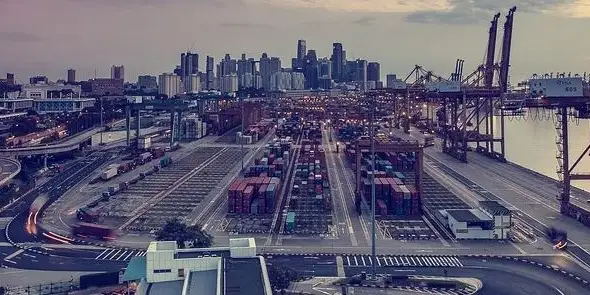In Russia and EAEU states, potentially hazardous facilities and equipment are approved for use with an industrial safety certificate in addition to EAC certification.
The certification of industrial safety is conducted voluntarily and does not replace the EAC certification according to the technical regulations of the Eurasian Economic Union, but is considered an additional quality proof.
The certification of industrial safety for machines, facilities, and equipment is carried out in production enterprises with increased risks and hazards.
Industrial safety is confirmed in two consecutive steps. First, an industrial safety expertise is conducted, and based on the conducted expertise, an industrial safety certificate is issued.
The industrial safety expertise is recorded in the unified register of the Rosstandart.
Industrial Safety Certificate for Russia
The certification of industrial safety is generally conducted for various machines, facilities, and equipment. The certification of industrial safety is carried out to strengthen competitiveness and as an additional proof of quality.
The implementation and proof of industrial safety are required for participation in tenders and reductions in Russia and EAEU states.
Furthermore, the certification of industrial safety is required when using different standards, guidelines, and norms for the conformity assessment of industrial facilities, machines, and equipment.
Facilities and machines for which industrial safety certification is provided:
- Elevators, cranes, hoisting machines, and escalators
- Machines and facilities for the extraction of oil and gas
- Facilities and machines for railways and rail transport
- Facilities and machines for mining and metallurgy
- Pressure equipment, pumps, boilers, and pipelines
- Fire and explosion hazardous equipment
- Production facilities and manufacturing lines
Industrial Safety Expertise
The industrial safety expertise is based on documentation of the equipment, manufacturing machine, or production facility, as well as existing certificates, declarations, and approvals, such as: ISO, DIN, GOST, EAC, TR, CE, or CB.
The expertise includes the following data and information:
- Name of the machine
- Information about the manufacturer
- Information about the applicant
- Description of the facility and functions
- Application and area of use of the equipment
- Reasons for conducting the expertise
- Conducted investigations and tests
- Possible risks and hazards
The process of industrial safety expertise consists of the following steps:
- Application for conducting the expertise
- Examinations and analyses of the machine or facility
- Examinations and analyses of hazards and risks
- Examinations and analyses of areas of use and associated risks
- Issuance of the industrial safety expertise
After conducting the industrial safety expertise, an industrial safety certificate is issued based on the expertise of industrial safety.
Necessary Documents
The following information and documents are required for the certification of industrial safety:
- Customs tariff number
- Product name
- Product description
- Strength calculation
- Ignition hazard assessment
- Safety considerations
- User manual
- Pressure vessel passport
- Technical passport
- Test protocols
- Data sheets
Duration and Costs of Industrial Safety
The duration of the industrial safety certification depends on several factors, such as the type, nature, and number of components of the machine or facility.
Obtaining an industrial safety certificate can take several weeks. The exact certification conditions are always planned individually for the facility or equipment.
The costs of industrial safety certification consist of several components: costs of technical documentation, costs of conducting the industrial safety expertise, and the costs of the industrial safety certification.
Legal Framework of Industrial Safety
In conducting the expertise and certification of industrial safety, the following laws and regulations of the Russian Federation and the Eurasian Economic Union (EAEU) are applied:
- Federal Law FSN116 of 21.07.1997 on minimum safety requirements for machines, facilities, and equipment with increased hazards.
- Regulation of Rosstandart N306 of 15.07.2013 – Justification of the necessary safety requirements in production enterprises with increased hazards.
- Regulation of Rosstandart N538 of 14.11.2013 - Requirements and principles for conducting the expertise and certification of industrial safety.


